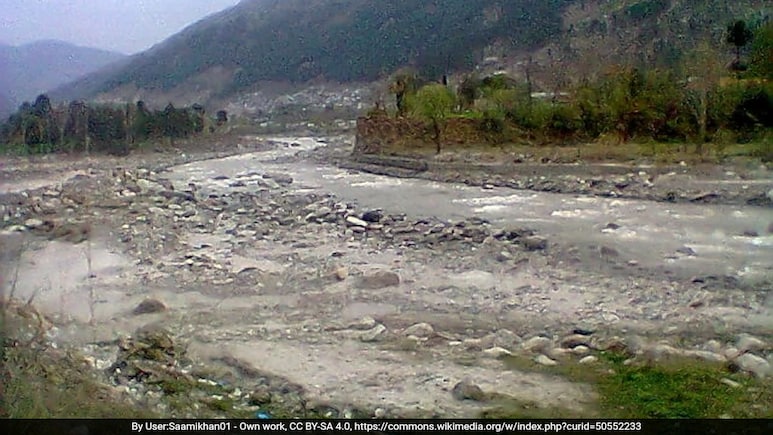
- Dams will be built on the Kunar River, which joins the Indus in Pakistan as the Kabul, the Taliban said
- This will restrict water supply to Pak for drinking water, irrigation and generation of hydroelectricity
- The Taliban's move follows India suspending the Indus Waters Treaty with Pak after the Pahalgam attack
Afghanistan borrowed from India's playbook this week to restrict Pakistan's access to water by building dams across the Kunar River "as soon as possible". The order came from the ruling Taliban's Supreme Leader Mawlawi Hibatullah Akhundzada, acting Water Minister Mullah Abdul Latif Mansoor said on X.
In his post, the minister said, "Afghans have the right to manage their own water" and that construction would be led by domestic firms rather than foreign.
That greenlight underpins the Taliban's urgency while it deals with violence along the Durand Line - i.e., the disputed, 2,600-km border with Pak - this month after Islamabad accused Kabul of backing the Tehreek-e-Taliban Pakistan, which the former had labelled a terrorist group.
The Taliban's move to limit flow of water into Pak echoes steps taken by India after the terror attack in Jammu and Kashmir's Pahalgam on April 22. Twenty-four hours later, India suspended the Indus Waters Treaty - a 65-year-old deal to share the waters of the Indus and its tributaries.
The Kunar River
Running for nearly 500km, the origins of the Kunar are in the Hindu Kush mountains in Chitral district of Pakistan's Khyber Pakhtunkhwa province. It then flows south into Afghanistan, running through the Kunar and Nangarhar provinces, before emptying into the Kabul River.
The combined rivers, boosted by the waters of a third, the Pech, then turn east into Pakistan again and join the Indus near the city of Attock in that country's Punjab province.
This river, now called the Kabul, is one of the largest to flow into Pakistan and, like the Indus, is a key source of irrigation, drinking water, and generation of hydroelectric power, particularly for the remote Khyber Pakhtunkhwa region that has been the epicentre of cross-border violence.
Should Afghanistan build dams on the Kunar/Kabul before it enters Pak, it will cripple the latter's access to water for farms and people already left parched by India restricting its supply.
More importantly, unlike the IWT Islamabad signed with Delhi, there are no treaties governing sharing of these waters, meaning there is no immediate recourse to force Kabul to stand down.
That has raised fears of Pak-Afghan violence spiralling further.
The Taliban's Riverine Push
Since seizing control of the Afghan government in August 2021, the Taliban has focused on stamping its authority over rivers and canals running through the country, including those that flow west into Central Asia, by building dams and canals to ensure its food security.
An example is the controversial Qosh Tepa canal being built in northern Afghanistan. Billed at 285 km, it is expected to turn an arid expanse of over 550,000 hectares into viable farmland.
Experts have said the canal could divert up to 21 per cent of another river, the Amu Darya, and that, in turn, could affect already water-starved nations like Uzbekistan and Turkmenistan.
Last week the Taliban's Foreign Minister, Amir Khan Muttaqi, was in India on a formal visit, during which he made it a point to appreciate support to build and maintain a dam in Herat province.
"... both sides also underscored the importance of sustainable water management and agreed to cooperate on hydroelectric projects with a view to addressing Afghanistan's energy needs and supporting its agricultural development," a joint statement said.
Track Latest News Live on NDTV.com and get news updates from India and around the world

